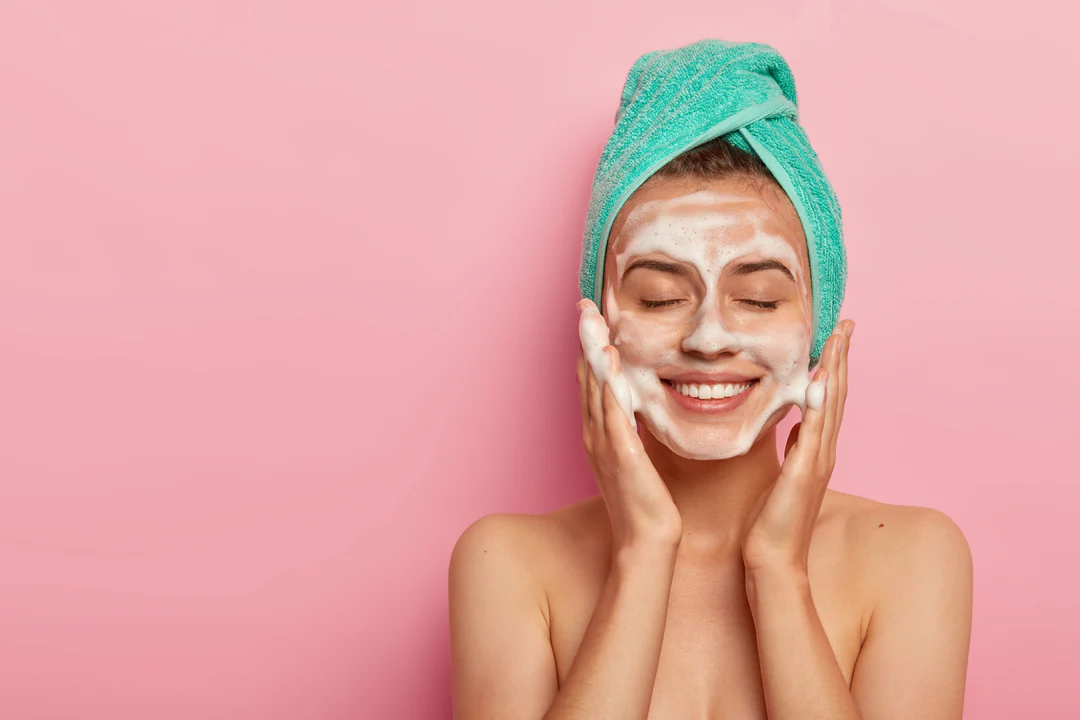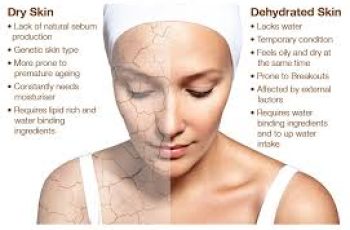
Can You use BHA With Retinol?
It’s perfectly normal to feel a little like a mad scientist when applying your skincare products. If you’ve been around these parts for a while, you may be feeling a little more confident when it comes to which ingredients work together. Don’t worry if you’re new though, as today we will be diving into finding out more about whether or not you can use BHA with retinol?
Let’s have a quick refresher of the benefits you can expect to see when using both BHA and retinol in your daily skincare routine.
What is BHA?
The most used BHA, also known as beta hydroxy acid, is salicylic acid which is derived from willow bark. Favoured by many who are prone to oily and blemish-prone skin due to its abilities to rid the skin surface of dead skin cell build-up, dirt, bacteria, and debris. It is also an acid that has the smallest molecular size and oil-soluble which means it can penetrate deeply into the pores and unclog them of any excess sebum or impurities that can lead to blemishes, such as blackheads and acne. Because of the high potency of this chemical exfoliant it is considered best to use with hydrating and nourishing ingredients, such as hyaluronic acid. If you are wanting to know more about BHAs, particularly salicylic acid, check out this blog post about its benefits on The Beauty Insiders.
What is Retinol?
One of the most potent and used skincare ingredients that is loved by the experts. Also known, as vitamin A, one of its main benefits is its ability to promote the skin cell turnover. This helps to improve the appearance of fine lines, wrinkles, uneven skin texture, dark spots, and breakouts. As you can see, retinol is multitalented ingredient and is also known for causing dryness and short-term side effects of itchy, flaky patches of skin. Because of this, retinol requires you to introduce it into your routine slowly and correctly to prevent any severe irritation and avoid potential damage. Find out more about retinol and its skincare benefits over on the blog.
Can you use salicylic acid with retinol?
The short answer is yes, but ensuring you use them in the correct way. You should avoid layering these two powerhouses as they are unable to play nicely together. But that doesn’t mean you need to not use either of them in your routine, it’s just a case of applying them during the optimal times of day.
Many skincare experts recommend using products, such as toners or cleansers containing salicylic acid during your morning routine, just make sure you finish your regime with a daily SPF. You can then follow this in the evening with your retinol product, this is also because retinol is known to lose its potency when exposed to sunlight.
If you are wanting to use salicylic acid in the evening you can, it just requires some more consideration to avoid any unwanted reactions. Ideally you should wait at least 30 minutes in between applications to allow the pH levels of the skin surface to rebalance and ready for the next stage in your skincare routine.
Can you exfoliate while using retinol?
No, it is best to avoid exfoliating when using retinol. This is because with the added chemical and physical exfoliation of the skin followed with an application of retinol will result in the skin becoming stripped of oil. Once the skin experiences this stripping it will begin to panic, and kick start an overproduction of sebum (the natural oil found in the skin). Excess sebum will result in a flare-up in breakouts and an imbalance in the type of skin you have.
Luckily, because it is advised to use retinol every other evening, you can exfoliate the skin the evenings you are not applying retinol. However, I would still suggest you consult with a doctor or dermatologist if you are introducing any new ingredients and products into your routine to avoid unwanted reactions.
Can you use salicylic acid and retinol in the same day?
Yes, you can, but just remember to be thoughtful about your application. As I have already mentioned, to reap the rewards of using both these ingredients you should alternate the time of day you use them. Seeing as retinol shouldn’t be used during the day, opt for a cleanser or toner enriched in salicylic acid during your morning skincare routine.
Remember to keep an eye on how your skin is feeling and if there are any signs of dryness or irritation that aren’t calmed with a hyaluronic acid serum then it’s best to seek the advice of a trained or medical professional.
What can you not mix with salicylic acid?
There are a number of skincare ingredients that should not be mixed with salicylic acid, such as.
Glycolic acid
Lactic acid Benzoyl peroxide Retinol/retinoids Tretinoin Vitamin C Just to clarify what I have already mentioned, just because you are unable to mix any of these ingredients with salicylic acid doesn’t mean you shouldn’t use them in your routine. If there is at least 30 minutes in between applications or apply them during different parts of the day, you’ll be able to reap the rewards. Which is better retinol or salicylic acid? Both ingredients are impressive and effective at combating blemishes and breakouts, but at the same time work slightly differently on the skin. You’ll find that they are both able to reach the lower layers of the epidermis, with retinol helping to boost collagen and elastin production, whilst salicylic acid targets any blocked pores. If its signs of ageing you want to address, retinol is the best ingredient to combat any concerns. As for any concerns with breakouts and blemishes, salicylic acid can make light work of spot causing impurities and bacteria. Deciding which one you would prefer and which more beneficial for your skin is down to personal preference and the skin concerns you are wanting to address. There you have it, hopefully you have a little more clarity on whether you can use BHA with retinol. Don’t forget if you have any further questions, come, and follow us on Instagram!
DQH Can I use salicylic acid first and then vitamin C?
It’s easy to create a skincare routine, but knowing how to use it is another thing entirely. In most cases, if you’re not getting the desired skin results, it could be due to the layering of conflicting ingredients. So, is it possible that salicylic acid and vitamin C are such ingredients? Or are these active ingredients the duo that’s been missing from your skincare routine? If you want answers, stick around because today we are going to explain the benefits of salicylic acid and vitamin C and how they can be used in your daily life.
What are the benefits of salicylic acid for skin?
Salicylic acid is one of the most commonly used beta hydroxy acids and is favored by many people with oily, acne-prone skin. This acid is derived from willow bark, and unlike its water-soluble relatives (called alpha-hydroxy acids), salicylic acid is oil-soluble, which means it can penetrate deeper into the lower layers of the skin. Once it reaches the lower layers, it can help unclog pores of excess sebum, dirt, bacteria, debris, and impurities. This results in clearer skin tones and greater definition.
Not only does salicylic acid benefit the underlying layers, but the outer surface of the skin benefits as well. When applied to the skin, salicylic acid removes the buildup of dead skin cells. This is accomplished by breaking the bonds that hold dead cells to the surface. Over time, this can cause the complexion to look dull and prone to acne, blackheads, and other blemishes.
If you’d like to learn more about salicylic acid and how it can improve your skin, check out this dedicated blog post from a beauty insider.
What are the benefits of vitamin C for skin?
Vitamin C is considered one of the most powerful antioxidants, which means it is very effective at fighting free radicals and preventing them from causing further skin damage. Examples of free radicals include pollution, central heating, UV rays and harsh climate. They attack proteins, fats and cell membranes as soon as they come into contact with the skin, causing signs of premature aging such as fine lines and wrinkles as well as hyperpigmentation, flaky patches of skin and loss of elasticity.
Many people usually prefer to use vitamin C in their morning routine as this ingredient gives the complexion a radiant glow. You’ll also find that vitamin C can target areas of hyperpigmentation, plumping the skin and reducing the appearance of fine lines and wrinkles.
The thing about vitamin C is that there are a lot of outdated studies going back to the 1950s that describe vitamin C as an unstable skin component. Thanks to improvements in modern technology, this is no longer the case as all products now contain a stable form of vitamin C.
Visit The Beauty Insider to learn more about vitamin C. So please check out our blog post.
Can I use salicylic acid first and then vitamin C?
Yes, you absolutely can. In fact, it’s thought that using salicylic acid before using vitamin C ensures it penetrates faster and works faster.
This is an efficient way to utilize two power sources, and the reason has to do with pH. For example, the skin’s natural pH is about 4.7, making it slightly acidic. Salicylic acid and vitamin C are also both acidic, and you’ll find that vitamin C is absorbed quickly into the skin. Therefore, using salicylic acid beforehand can increase the acidity of the skin and allow vitamin C to penetrate into the skin faster.
While this is considered an effective way to combine two powerful ingredients, you need to be aware of your skin type and how it reacts to certain active ingredients. Even people with perfect, normal skin can experience skin sensitivity and irritation. Therefore, always consult a doctor or dermatologist before using any new products on your skin.
It’s also important to follow skin application rules. In this case, you need to use the product correctly to ensure you get the best results for your skin. If you’re not sure what I mean, the basic rule for skin is to start with the thinnest consistency and work your way up to the thickest consistency. This prevents a barrier from forming on the surface, preventing other active ingredients from penetrating the skin.
Can I use salicylic acid at night and vitamin C in the morning?
Yes, absolutely, this is considered the most effective way to get returns without any adverse side effects. This is because there is enough time between applications to ensure that the skin’s pH levels return to balance.
You’ll also find that Vitamin C is rich in antioxidants and is perfect for use in the morning to ensure your skin is protected and looking its healthiest. Due to the small size of salicylic acid molecules, it is an acid that is able to reach the deepest parts of the skin. While this is effective at keeping skin clear, it also increases the risk of irritation and photosensitivity. Therefore, many people prefer to use powerful BHAs in their evening routine without exposure to UV rays, pollution, or harsh weather.
Warning: If you avoid using sunscreen every day, none of these ingredients will do what your skin needs. The combination of chemical peels and powerful ingredients increases the risk of further damage to the skin’s surface. Use SPF 50 every day to keep your skin protected and your lipid barrier healthy, even on cloudy days, keeping your skin in top condition.


